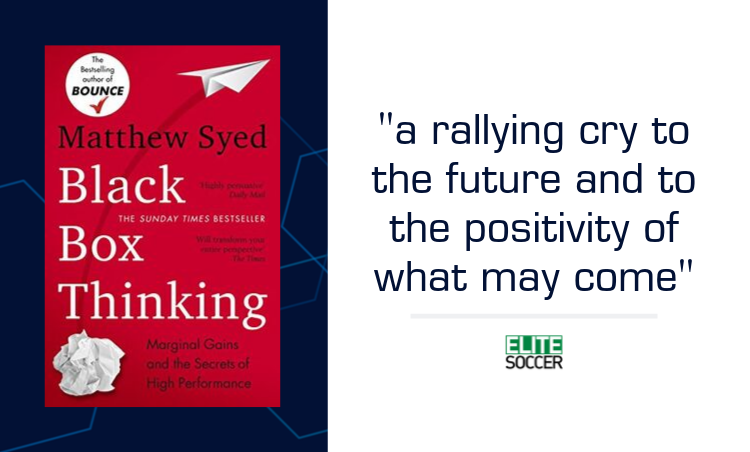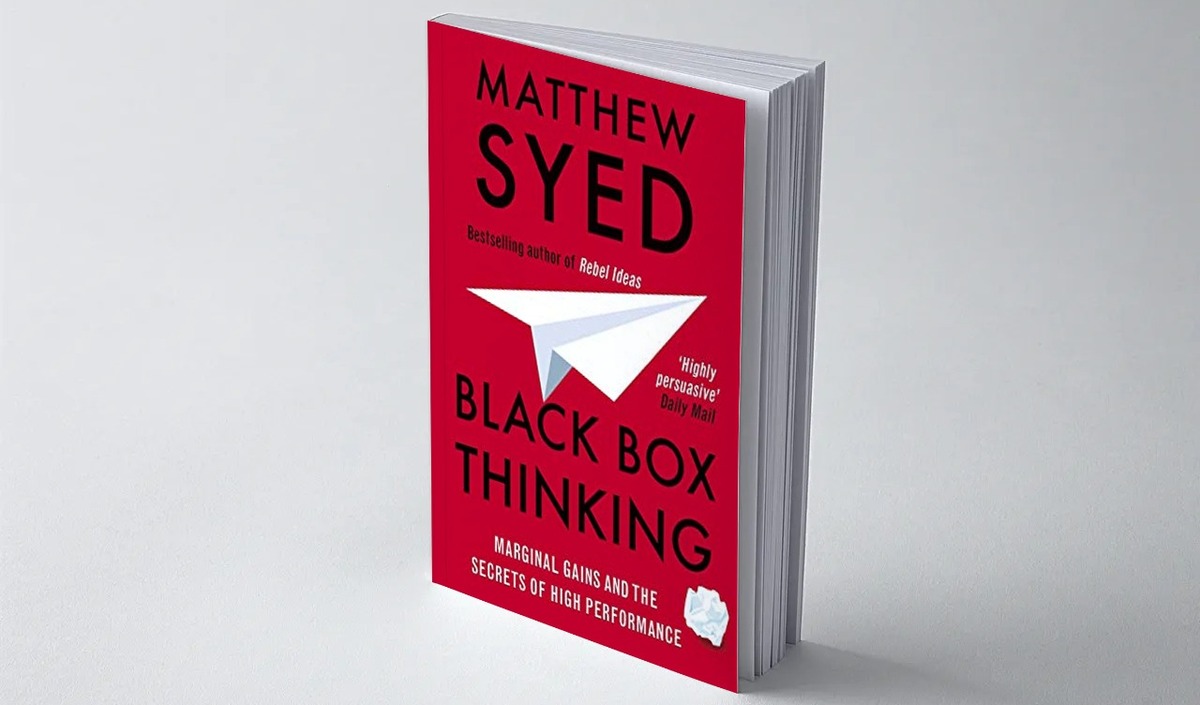You are viewing 1 of your 1 free articles
Embracing failure?

When Matthew Syed published Bounce in 2011, there was a feeling that a lid had been lifted on some of the true psychological mechanics behind talent and power. It was a book of research, gleaned through first-hand experiences over the course of many decades – not least 10 years spent as the number one table tennis player in Britain – that weaved together to create one of the most stimulating and thought-provoking sports coaching books ever to hit the shelves.
So it is with expectation and intent speculation that the release of Black Box Thinking comes. And this is a book that, similarly, doesn’t disappoint. Where Bounce was centred on the mentality behind success, this new book focuses more on the reaction to failure, and in listing the achievements of those in sport, business and entertainment, there is a rich multitude of layers upon which the research is based and discussed.
It may seem perverse to confront the negative side of competitive spirit, but that disappointment, and the rallying cry to steer clear of negative events, sits at the very heart of so many individual sporting successes. And the delivery of this matter is done in such an elegant and well-mannered way that Syed offers the impression that initial failure should almost be encouraged; that it represents something of a passage of rites.
He uses case studies and his own personal experiences to decorate a method of reacting to events in a way so as to conquer not only the opposition but one’s own personal demons.
As ever, it is about the small margins. That’s why Syed’s book doesn’t propose a radical new model, a revolutionary set of ideals or a vision of acquiring success that no-one has previously imagined. This is about subtle references to how we go about our aims, yet all from a standpoint of initial failure, and that’s what makes this so refreshing.
To sum up, the book represents a rallying cry to the future and to the positivity of what may come, whatever the setbacks and however tough the experience of the journey has been. In many ways that makes this many times the better of other sports psychology books, Bounce included.
Excerpt
"The first and most important issue is to create a revolution in the way we think about failure. For centuries, errors of all kinds have been considered embarrassing, morally egregious, almost dirty. The French Larousse dictionary historically defined error as ‘a vagabondage of the imagination, of the mind that is not subject to any rule’.
This conception still lingers today. It is why children don’t dare to put their hands up in class to answer questions (how embarrassing to risk getting an answer wrong!), why doctors reframe mistakes, why politicians resist running rigorous tests on their policies, and why blame and scapegoating are so endemic.
As business leaders, teachers, coaches, professionals and parents, we have to transform this notion of failure. We have to conceptualise it not as dirty and embarrassing, but as bracing and educative. This is the notion we need to instill in our children: that failure is a part of life and learning, and that the desire to avoid it leads to stagnation.
We should praise each other for trying, for experimenting, for demonstrating resilience and resolve, for daring to learn through our own critical investigations, and for having the intellectual courage to see evidence for what it is rather than what we want it to be.”
BLACK BOX THINKING, Matthew Syed. Published by John Murray Books.
Editor's Picks
Using the goalkeeper in build-up play
Pressing principles
Intensive boxes drill with goals
Penetrating the final third
Creating and finishing
My philosophy
Pressing initiation
Compact team movement
Defensive organisation
Coaches' Testimonials

Alan Pardew

Arsène Wenger

Brendan Rodgers

Carlos Carvalhal

José Mourinho

Jürgen Klopp

Pep Guardiola

Roy Hodgson

Sir Alex Ferguson

Steven Gerrard
Coaches' Testimonials

Gerald Kearney, Downtown Las Vegas Soccer Club

Paul Butler, Florida, USA

Rick Shields, Springboro, USA

Tony Green, Pierrefonds Titans, Quebec, Canada
Join the world's leading coaches and managers and discover for yourself one of the best kept secrets in coaching. No other training tool on the planet is written or read by the calibre of names you’ll find in Elite Soccer.
In a recent survey 92% of subscribers said Elite Soccer makes them more confident, 89% said it makes them a more effective coach and 91% said it makes them more inspired.
Get Monthly Inspiration
All the latest techniques and approaches
Since 2010 Elite Soccer has given subscribers exclusive insight into the training ground practices of the world’s best coaches. Published in partnership with the League Managers Association we have unparalleled access to the leading lights in the English leagues, as well as a host of international managers.
Elite Soccer exclusively features sessions written by the coaches themselves. There are no observed sessions and no sessions “in the style of”, just first-hand advice delivered direct to you from the coach.









